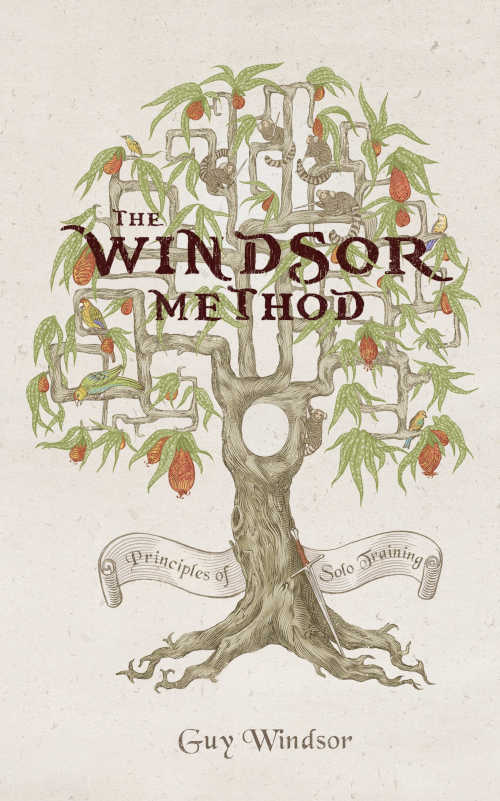The simple secret to getting more done

When promising yourself a reward doesn’t help, try this author’s surprisingly simple trick for staying motivated—even when you’re not thrilled about doing something.
by Guy Windsor
 In every pursuit worth doing, there will be parts you don’t like. For many writers, the first draft is the fun bit and everything else is work. For others, the first draft is a ghastly slog, and things only become enjoyable when you have that raw material ready for shaping and polishing. Self-discipline is a useful skill that can get you through short bursts of slog, but it’s a finite resource that can be exhausted by longer-term problems. So what does work?
In every pursuit worth doing, there will be parts you don’t like. For many writers, the first draft is the fun bit and everything else is work. For others, the first draft is a ghastly slog, and things only become enjoyable when you have that raw material ready for shaping and polishing. Self-discipline is a useful skill that can get you through short bursts of slog, but it’s a finite resource that can be exhausted by longer-term problems. So what does work?
For me, the answer is positive constraints. These are external conditions that simply require you to behave in a certain way. Let me give you a couple of examples from my own experience.
I teach historical martial arts for a living, which requires a certain level of physical fitness and agility. The teaching is easy—it’s my favorite part of the research-training-teaching structure of my job. With students in front of me it takes no discipline at all to operate at my best available level because the students naturally draw it out of me. And staying fit enough to set a decent example for my students was easy when I was seeing them regularly. But during lockdown I found my usual morning training routines getting whittled down further and further, until one morning I did literally two squats and one push-up, stood up and said to myself, “Fuck it, that’ll do.”
My next thought was along the lines of, “This is leading nowhere good.”
Books & Buzz Magazine is where writing pros spill their secrets! Subscribe now for free
In the absence of regular classes, my self-discipline was insufficient to the task of keeping me fit. I gave it some thought and realized there was an easy fix: I started a morning trainalong class, three times a week, over Zoom. The sessions are free, or students can chip in a few quid. With students coming I had to show up on time and do the training. No excuses. And, because of the way I’m made, no self-discipline required. It takes it out of the “optional” category and refiles it as “mandatory.”
I don’t find “When I finish this article I can have cake” helpful, because I know perfectly well that I can just stop writing and have cake now.
As the negative constraints of the pandemic mounted, I found that spending time in my woodworking shed (I used to be a cabinetmaker before shifting to swords full time) was good for my mental health. But as with most things that are good for your mental health, it was hard to get started. I have a dehumidifier in the workshop to keep the wood at the right moisture level and stop my tools from rusting. It extracts water from the air and puts it in a little tank, or you can attach a pipe and have it drain away.
The problem with using the tank is I have to go down to the end of the garden and open up the workshop and empty the tank every day. It won’t overflow, but the dehumidifier turns itself off when the tank is full. It would take ten minutes to set up the drain option, but I have not—and will not—because once I’m in the workshop, I usually start fiddling about with the next project (I’m always working on something—currently a display cabinet for some sixteenth and seventeenth century fencing books).
The dehumidifier tank is a positive constraint that gets me off the sofa and out into my workshop, no discipline required.
The trick is finding the right constraints for you. If you hate teaching classes, then having students depending on you would be a burden, not a stimulus.
Constraints are different to self-imposed restrictions or rewards. I don’t find “When I finish this article I can have cake” helpful, because I know perfectly well that I can just stop writing and have cake now. Cake withholding requires discipline. But as any journalist will tell you, writer’s block doesn’t exist when your editor requires your copy by 2 p.m. Thursday. With the right external constraints, you just get it done.
The trick is finding the right constraints for you. Some people find habit-tracking apps really helpful. If you hate teaching or leading classes, then probably having students depending on you would feel like a burden, not a stimulus. If the constraint feels artificial, it probably won’t work. Deadlines are helpful for some, crushing for others. The same is true for promises made to beta-readers or your mailing list: personally I only ever put a book up for pre-order when my work on it is done and it’s in the hands of my layout artist and publishing assistant. Selling a book I haven’t written yet would be too much pressure for me, but I have friends who thrive on it.
So what part of the writing process requires discipline for you, and what constraints could you put in place to save your spoons for other things?
Dr. Guy Windsor is a world-renowned instructor, pioneering researcher of medieval and renaissance martial arts, and founder of the School of European Swordsmanship in Helsinki, Finland. Guy is the author of numerous classic books about the art of swordsmanship and has consulted on swordfighting game design and stage combat. In 2018, Edinburgh University awarded him a PhD by Research Publications for his work recreating historical combat systems. When not studying medieval and renaissance swordsmanship or writing books Guy can be found in his shed woodworking or spending time with his family.